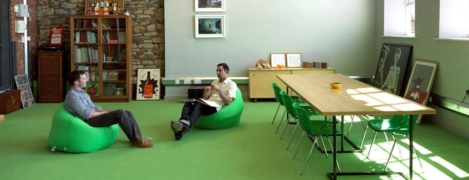July 15, 2015
One in five Brits distrustful of adopting wearable technology at work
 Almost a fifth (18 percent) of European employees already have access to some form of wearable technology, but British workers are most worried about the privacy implications. According to research by ADP wearables such as augmented reality headsets, biometric identification and holographic video conferencing tools will create opportunity for businesses to improve productivity, connectivity and security. Yet more than half (52 percent) of employees are concerned about the amount of personal data employers can access via wearable technology, with attitudes towards privacy varying between countries. While as many as 60 percent of German employees express reservations, only 36 percent of Dutch employees feel this way. Overall, UK workers are the most hesitant, with as many as one in five (20 percent) saying that they would not use wearables at all, compared to 10 percent in France, and 8 percent in Germany and the Netherlands.
Almost a fifth (18 percent) of European employees already have access to some form of wearable technology, but British workers are most worried about the privacy implications. According to research by ADP wearables such as augmented reality headsets, biometric identification and holographic video conferencing tools will create opportunity for businesses to improve productivity, connectivity and security. Yet more than half (52 percent) of employees are concerned about the amount of personal data employers can access via wearable technology, with attitudes towards privacy varying between countries. While as many as 60 percent of German employees express reservations, only 36 percent of Dutch employees feel this way. Overall, UK workers are the most hesitant, with as many as one in five (20 percent) saying that they would not use wearables at all, compared to 10 percent in France, and 8 percent in Germany and the Netherlands.

































June 30, 2015
Is the environment now a non-issue for building occupiers and managers?
by Mark Eltringham • Comment, Environment, Facilities management, Workplace design
(more…)